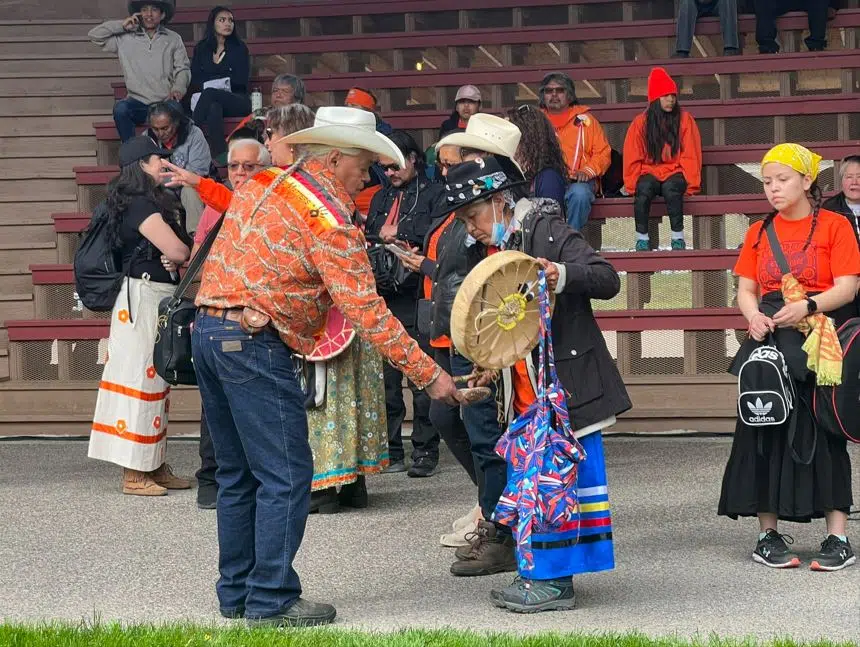
(Photo: Abby Zieverink)
Tk’emlúps te Secwepemc is encouraging women to wear ribbon skirts in honour of the first-ever National Ribbon Skirt Day in Canada.
The movement, which was passed as a national day in parliament last month, started in 2020 when Isabella Kulak — a young girl from Saskatchewan– was shamed for wearing a ribbon skirt to a formal day at her elementary school.
Tk’emlúps councillor Nikki Fraser says the day has grown significantly since that event, honouring both Isabella Kulak and Indigenous women by wearing ribbon skirts.
“Being able to wear them not only at Indigenous events but also at work and in everyday life. You see that more and more often now, even here in Kamloops, I see Indigenous women wearing ribbon skirts, and also non-Indigenous women participate in that movement too.”
Fraser says having National Ribbon Skirt Day recognized nationally, goes to show how people of all ages can have a positive impact on reconciliation.
“It took orange shirt day, a long time to even become a national holiday, and this young lady made this happen within half the amount of time the orange shirt society was able to do that. I think that just shows go to show that Canadians are looking at reconciliation when it comes to attire when it comes to standing and being allies with all Indigenous age groups, whether young or old.”
On top of that, Fraser says the power of social media in impacting change is really shown in Isabella’s story.
“I remember first wearing my ribbon skirt, and I was on the reserve and we were at a community event and I had to run to town, and I was like ‘oh my gosh, I’m in my ribbon skirt’ and feeling like everyone is going to stare. Now, when I do that, that small shift in society that small shift in having a young woman say no, I’m proud of this, I’m going to do this, and I think other women should too,” said Fraser. “She (Isabella) is a trailblazer, and did that by just wearing a ribbon skirt.”
Now, every year on January 4, National Ribbon Skirt day will honour and celebrate the importance of Indigenous traditions and culture.















